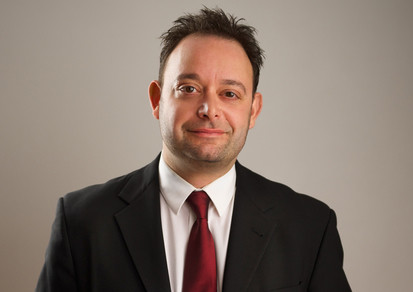Why a soccer hooligan is smiling
Jibril Rajoub is many things — a convicted terrorist, a former West Bank security chief, a former confidante of the late Yasser Arafat, and now the head of both the Palestinian Football Association and the Palestinian Olympic Committee.
Most of all, he is a bellicose thug whose antics resulted in a friendly soccer match between Argentina and Israel being unceremoniously called off.
But was the decision of Argentina’s Football Association an uncomplicated victory for BDS? The answer is no. To begin with, nowhere in its cancellation did Argentina declare solidarity with Palestinians, condemn Israel or endorse a ban on sporting links with Israeli teams.
Then there’s the fact that the decision goes, to borrow a soccer phrase, “against the run of play.” The soccer world is not boycotting Israel. In the four years since the last World Cup, Israel has hosted national sides including Spain, Wales, Albania, Bosnia, Italy, Uruguay and Cyprus for both competitive and friendly fixtures. These games have been played at stadiums across Israel, among them the supposedly controversial Teddy Stadium in Jerusalem, where the Argentina match was to have taken place.
And then there is Rajoub. His 2015 campaign to have Israel expelled from FIFA failed miserably. A recent effort to sanction Israel’s Football Association over its West Bank-based teams petered out, leading Rajoub to accuse European soccer chiefs of feeling overly guilty about what “some European countries did to the Jews last century.” So how is he now able to boast of a political victory?
Originally, the game was supposed to have been played at the Sammy Ofer Stadium in Haifa. But with Israel marking its 70th anniversary, and the American embassy now moved to Jerusalem, Israel’s Minister of Culture and Sport Miri Regev decided, with the Netanyahu’s backing, that it would be politically savvy to move the game to Israel’s capital.
Rajoub, desperate for some kind of victory after a series of humiliating defeats, seized on the situation. In the swaggering manner of the “generals” who once led Europe’s notorious soccer hooligan “firms,” on Sunday, he issued a series of vulgar threats against Argentine captain and megastar Lionel Messi, perhaps the most revered soccer player in the world, promising to burn Messi replica T-shirts, souvenir photos and wall posters, and the entire Messi presence on social media should the game go ahead. Reports of death threats against the Argentine players quickly followed on social media.
Regev went into overdrive. “One of the most popular players in the world, who has a billion followers — there is no question that the right thing is for him to play in Jerusalem,” she said of Messi. “What better hasbara [Israeli PR] is there?”
By Wednesday, Argentina made a final decision to pull out of the game.
Speaking to ESPN, Argentine center-forward Gonzalo Higuaín deemed it “the right thing” to do. This was an unfortunate choice of words; in moral terms, it was absolutely the wrong thing to have done, particularly when the forthcoming World Cup will be hosted in Vladimir Putin’s Russia! But no one could begrudge him or his teammates the right to feel relieved.
Because the Argentine decision wasn’t about politics or BDS or hatred of Israel. Ultimately, it was about soccer — not just the sport, but the multibillion-dollar business of promotion and branding.
Argentina hasn’t won the World Cup since 1986. Those who remember the ashen Messi climbing the stairs to receive his runners-up medal after losing the 2014 World Cup Final to Germany will know that this is his last opportunity to claim victory. There is a huge amount at stake. For Argentina’s Football Association to allow their team to be dragged into ugly Middle Eastern politics less than a fortnight before the World Cup starts would have been unforgivable.
It is this that Miri Regev, as a politician, should have understood. Unsurprisingly, the majority of Israelis blame her for their disappointment. Had the match been played in Haifa as planned, had Regev kept her promotional ideas to herself, it would doubtless be going ahead.
As I have argued in this column before, the BDS movement is in decline, regarded with suspicion by democratic governments around the world, and routinely chalking up defeats that far outweigh the occasional “victory.” To maintain this trend, Israel’s leaders need to think strategically about every major event that is staged in the country, with the first principle being “do no harm.”
It’s not necessary to have every international soccer match played in Jerusalem, especially given the long international tradition of staging such games in provincial cities. It’s not necessary to announce that a sporting legend is going to “kiss the Kotel,” especially if you haven’t checked with him first. But it is imperative that Israeli officials understand that the best response to those who oppose “normalization with the Zionist enemy” is to behave as if such dazzling events are the most normal thing in the world—and that means keeping politics, and politicians, out of the equation.

 46.0°,
Light Drizzle
46.0°,
Light Drizzle 




